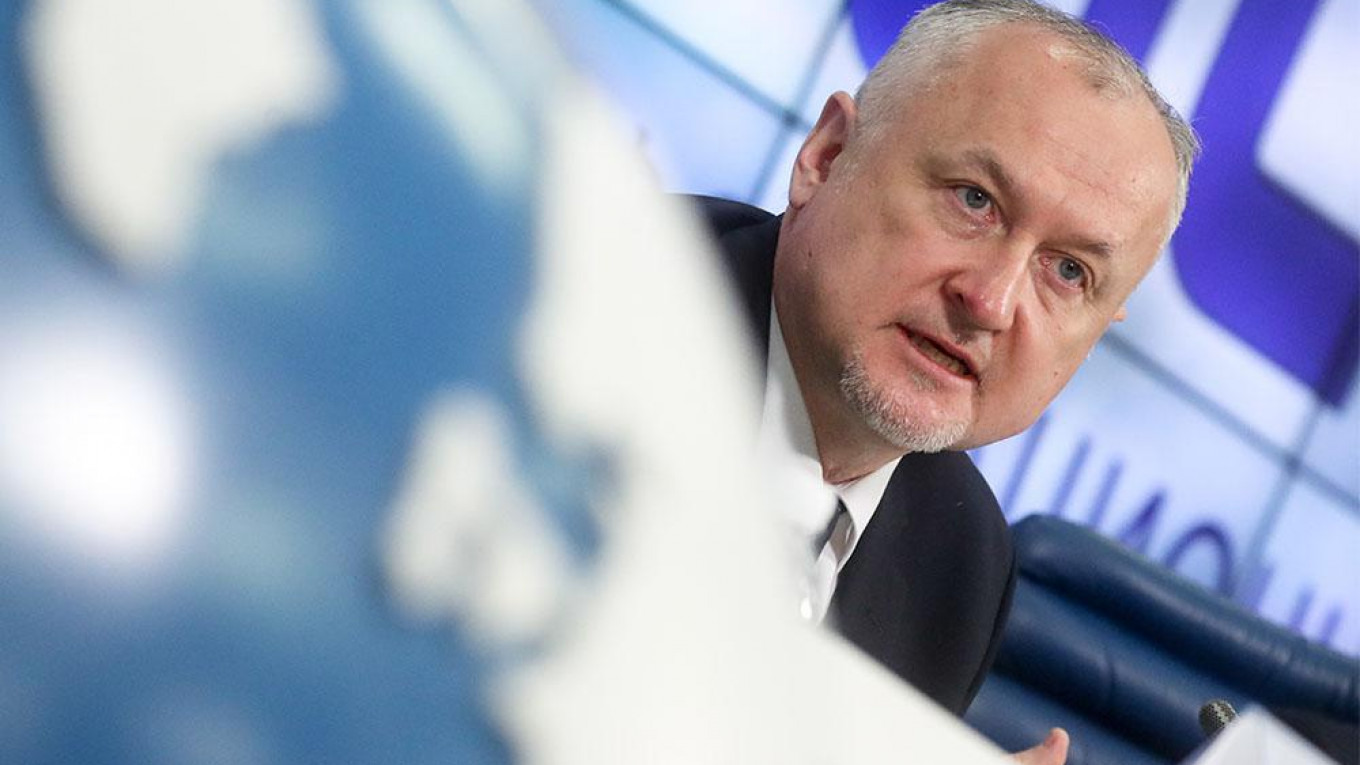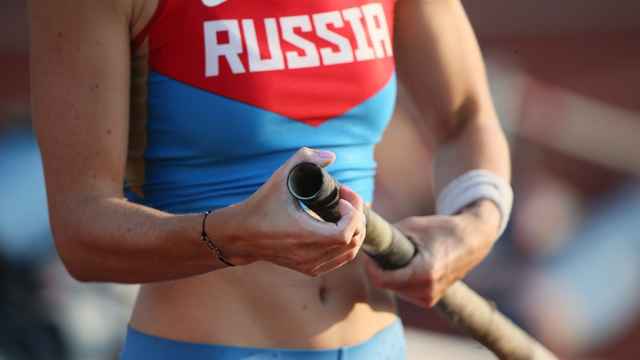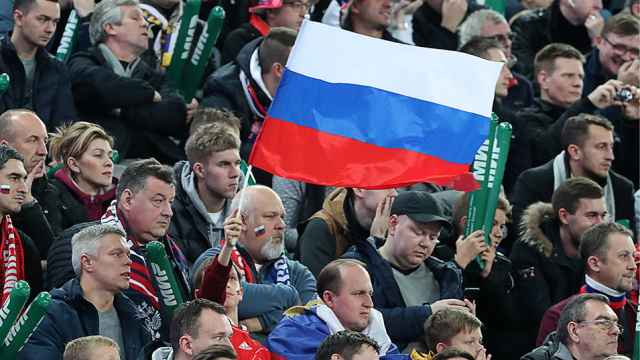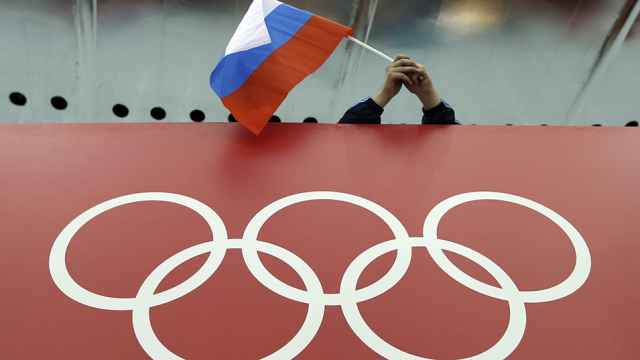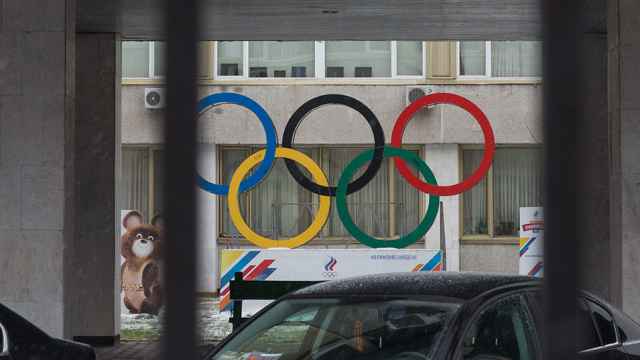The World-Anti Doping Agency (WADA) on Wednesday ruled for the third year running that Russia’s anti-doping agency is not meeting international standards.
The decision is a blow to Russia’s hopes of participating in the Winter Olympics in February, especially since Sports Minister Pavel Kolobkov said this summer he wasn’t even entertaining the possibility Russian athletes would be barred.
“I would like to believe that the people who are responsible for these decisions will avoid being subjective in their assessments and will be guided by common sense, rely on irrefutable facts, and not give in to emotions,” Kolobkov said.
Russian athletes and officials responded swiftly — and defensively — to WADA’s decision Thursday.
Kolobkov said his impression was that “the decision was made in advance.”
“We believe the state has fulfilled all its obligations,” he added.
Alexey Pushkov, a senior lawmaker, tweeted, “WADA is the NATO of sports.”
Mikhail Degtyaryov, the chairman of the State Duma Committee for Physical Culture, Sport, Tourism and Youth Affairs, told The Moscow Times that Russia has done everything it can do respond to the controversy.
“Over the past 1.5 years, all the necessary changes have been made,” he said, adding: “We are even one step ahead of the world in terms of the level of anti-doping.”
Degtyaryov’s deputy Valery Gazzaev called the decision politically motivated.
"WADA's refusal to restore RUSADA's rights is nothing more than a politically biased decision," he said. "It is a pity that politics continue to affect sports."
State Duma deputy and three-time Olympic figure skating champion Irina Rodnina said the WADA decision was made without proper evidence. "This is a very unpleasant moment because we have fulfilled almost all conditions,” she said.
Two-time Olympic champion Yelena Isinbayeva echoed Rodnina’s complaint, calling WADA’s decision "speculation."
"We met all the requirements for compliance,” she said. “Our transparency today is the envy of any organization worldwide.”
WADA’s ruling on Thursday puts pressure on the International Olympic Committee (IOC) to ban Russia from the upcoming Winter Games. The IOC is expected to issue rulings on Russia’s participation at the 2018 Olympics in Pyeongchang, South Korea in December.
Russia’s deputy prime minister Vitaly Mutko, who was Russia’s sports minister when the doping scandal story broke in 2014, believes that it should not affect the Olympic team’s participation in the upcoming Games.
“The restoration of RUSADA and the participation of the national team in the Olympics are two different things — one is not related to the other,” he said, noting that the decision was expected. “Nothing has changed following this decision.”
Hajo Seppelt, a German journalist who originally broke the story of Russia’s state-sponsored doping scheme in 2014, dismissed the Russia’s objections to the ruling. He told The Moscow Times that Russia “shouldn’t wonder why this decision has been made” until it accepts the findings of the McLaren report — the report commissioned by WADA to assess RUSADA.
The anti-doping agency still has not fulfilled two of WADA’s recommendations: providing it access to a Moscow laboratory — which is currently sealed off due to a federal investigation — and publicly stating that officials were part of the coverup.
“The decision rested on McLaren's report, which contains serious factual errors,” Degtyaryov told The Moscow Times. “How can you admit something that didn’t happen? How can we admit that we had a state system for encouraging doping, when it didn't exist?”
“Of course we will not admit it,” he added.
The Kremlin’s spokesperson Dmitry Peskov affirmed the position on Thursday.
“We disagree with this decision,” he said. “We consider it unfair.”
He added that Moscow "categorically denies the accusations that the state supported doping.”
A Message from The Moscow Times:
Dear readers,
We are facing unprecedented challenges. Russia's Prosecutor General's Office has designated The Moscow Times as an "undesirable" organization, criminalizing our work and putting our staff at risk of prosecution. This follows our earlier unjust labeling as a "foreign agent."
These actions are direct attempts to silence independent journalism in Russia. The authorities claim our work "discredits the decisions of the Russian leadership." We see things differently: we strive to provide accurate, unbiased reporting on Russia.
We, the journalists of The Moscow Times, refuse to be silenced. But to continue our work, we need your help.
Your support, no matter how small, makes a world of difference. If you can, please support us monthly starting from just $2. It's quick to set up, and every contribution makes a significant impact.
By supporting The Moscow Times, you're defending open, independent journalism in the face of repression. Thank you for standing with us.
Remind me later.



